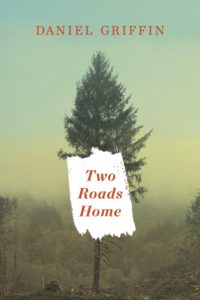Daniel Griffin’s Two Roads Home brings the reader back to 1933, during peaceful pro-environment protests in British Columbia. The fictional story raises a question: what if the protests were not so peaceful?
The book follows the trajectory of four people who seek to do justice with their own hands. Armed with courage, a clear goal, and many explosives, they prepare to destroy a logging-company warehouse. However, the unexpected arrival of a night security guard when the explosives are about to detonate causes their plans to derail.
Interestingly, Griffin—who lives in Victoria—presents an unbiased narrative about who would be right, leading the reader to make a deep reflection on the ends justifying the means.
On one hand, it’s possible to understand the motivations of the activist group; on the other hand, it’s known that violent action can have serious consequences. This web of feelings, emotions, and doubts is the thread of Two Roads Home. And at the centre of this web is the organization Earth Action Now, which the activists are part of.
The organization works almost as a living entity in the narrative and could even be one of the protagonists. The characters refer to it as something powerful that’s above them and their own wills. Griffin does not make explicit the presence of an antagonist; rather, it’s quite the opposite. Descriptions of the emotions of each character make the reader identify with at least one aspect of each of them. Therefore, the role of antagonist falls, unconsciously for the reader, to the organization itself.
This was one of the main highlights of the book, as it’s common and even natural in everyday life that people seek someone or something to blame for unhappy and sad situations. What Two Roads Home shows is that there are human beings making decisions that cause those situations.
Two Roads Home is not a light book because it leaves the reader uncomfortable with the narrative at various points in history. This discomfort is the result of the understanding that even people’s deepest beliefs—beliefs that they may feel are positive—can lead to negative consequences when placed above values and society.

